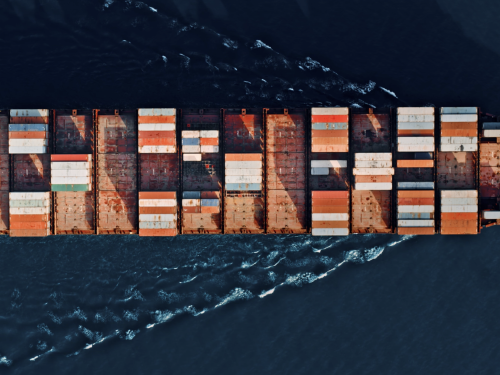News
Share on
The Salone dei Cinquecento in Palazzo Vecchio and an audience of over 400 entrepreneurs from all over Italy. This was the setting that hosted the speech by the President of Piccola Industria Giovanni Baroniat the opening of the National Forum held in Florence on 9 and 10 May 2025. Artificial intelligence and innovation, energy security, climate change and disaster management, defence and aerospace. For President Baroni, the major trends driving the new world balances are 'a source of uncertainty but also of opportunities. They can represent a threat to doing business if not managed, but also opportunities for development on which to focus our energies and investments'. A double reading in which one conviction remains firm: "Industry must be put at the centre - emphasises Baroni - is a matter of national security".
"Europe is lagging behind in artificial intelligence, in which the United States and China are leading players today. It is difficult to catch up with these two continents,' he said, 'but for Italian SMEs it is a matter of taking up the challenge of integrating AI tools into production niches where process dominance and knowledge is crucial. What does it take to do that? Two elements are indispensable: investments and skills. Collective commitment is needed on these'.
In the course of the speech a passage was dedicated to Transition 5.0. Although it is starting to work better, President Baroni explained that 'we will not be able to catch up, barring changes. We will not even come close to the 6.3 billion allocation, it is a huge waste'.
On digital innovation and energy and climate transition, the President of the Small Industry said that 'it is a competitiveness issue for companies, a systemic issue, of general interest, but it is also an area of investment in digital technologies, efficiency in consumption, costs and emissions. No controversy, we set up the Forum to talk about opportunities. We strongly reiterate the request for a confrontation between parties and subjects that have different roles, priorities and interests in order to arrive at shared solutions within a reasonable timeframe. It seems to me that decisive action in favour of lowering costs is the direction of the governmentWe can only expect it to materialise as quickly as possible. The exogenous problems undermining the competitiveness of Italian companies, starting with ongoing conflicts and tariffs, are too many to allow us the luxury of not solving those we have at home'.
On the issue of climate change, Baroni recalled the Protocol with the National Department of Civil Protection, the result of a long journey begun by Piccola Industria at the time of the earthquake that struck Emilia-Romagna in 2012 and which led to the creation of the Emergency Management Programme. The issue of catastrophe policies is the one that attracts the attention of companies today. An undoubtedly important tool for Baroni, but with one clarification: "We would like the insurance obligation to be only the building block of a comprehensive safety intervention in the area starting with the most exposed areas, through an adequate investment of public resources. Just as it would certainly make sense to support through some incentive mechanism those companies that decide to invest in structures and facilities to reduce their exposure to risks'. Finally, Chairman Baroni dedicated some reflections to the defence and aerospace topics. These are 'markets with big differences, but they share one characteristic, a demand that drives companies to invest'.
'We must act in Italy, but it is not enough: Europe must also move,' he explained. 'The European Union is moving towards unbureaucratisation, but the turning point to put industry at the centre has not yet arrived. The new Commission has committed itself to reducing the bureaucratic burden for companies by 25% and 35% for SMEs: we are confident in the path started with the first Omnibus package and we hope it will see new stages soon. But we do not see the breakthrough that was hoped for with regard to the industry. We would like concrete gestures'.




